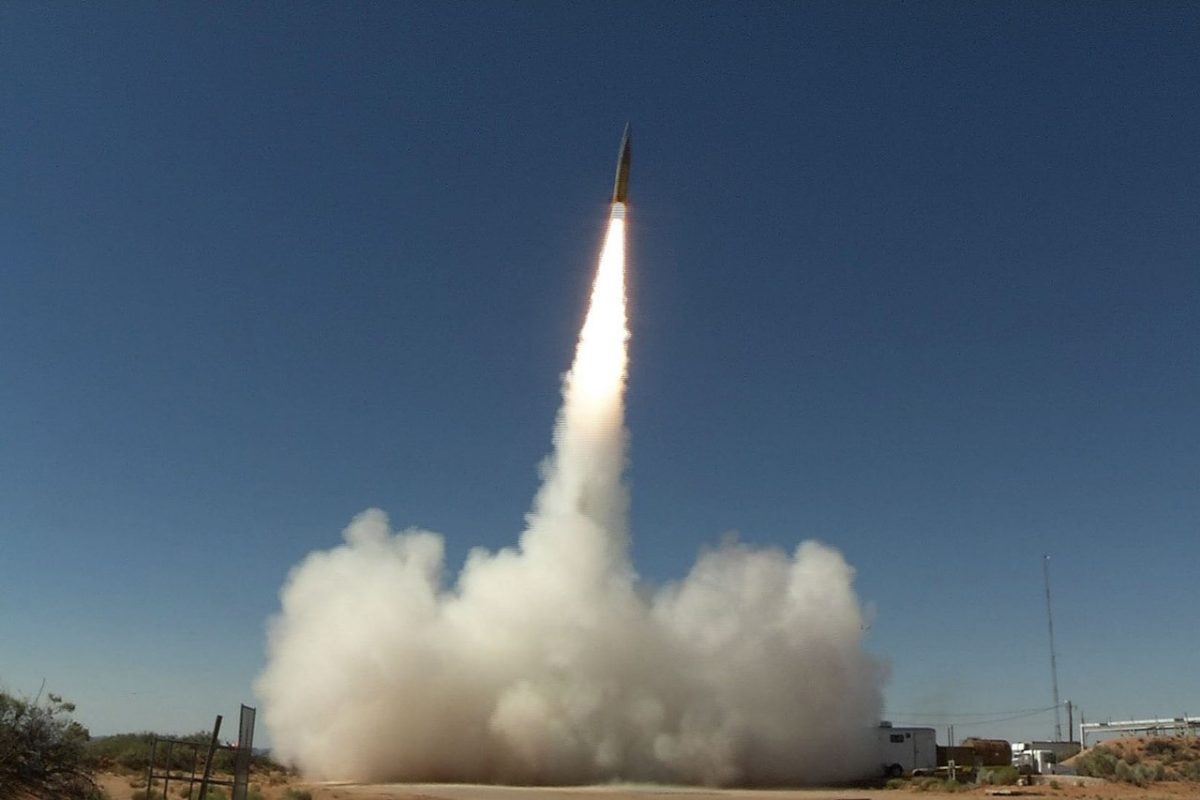With nations such as North Korea, Iran, Russia and China all maturing their missile technology, the Defense Department plans to launch a review of its own missile defense policies, strategies and capabilities over the next few months, testified Leonor Tomero, the deputy assistant secretary of defense for nuclear and missile defense policy before the Senate Armed Services Committee.
Thirty-five years ago, President Reagan first announced his “Strategic Defense Initiative,” (SDI) designed to provide an anti-ballistic (ABM) missile shield to protect the U.S. from nuclear attack. Some historians believe the announcement was at least one factor in the Soviet leadership’s realization that they could not win the Cold War. The move was resoundingly criticized by left-wing politicians and pundits, who pejoratively labelled the concept “Star Wars.”
SDI was never built, and even less capable systems were only marginally deployed. President Clinton cancelled a follow-up program known as “Brilliant Pebbles” and Barack Obama, first as a U.S. Senator, then as President, did everything possible to defund and even reduce various elements of ABM defenses. in 2007, then-Senator Obama advocated cutting the anti-ballistic missile program budget by a greater amount than its entire allocated budget.
Generally, what exists of the minimal U.S. missile defense systems have been designed to defend against ballistic missiles. However, the Trump administration’s 2019 Missile Defense Review most clearly noted that the United States will be looking for ways to defend against non-ballistic missiles.
Cruise missiles and hypersonic missiles are two additional categories of missiles. Unlike ballistic missiles, cruise missiles remain within the atmosphere for the duration of their flight. Cruise missiles are propelled by jet engines and can be launched from land-, air-, or sea-based platforms. Due to their constant propellants, they are more maneuverable than ballistic missiles, though they are also slower than their ballistic counterparts.
The latest review will be coordinated across the DoD, including such entities as the Missile Defense Agency, U.S. Northern Command, NORAD and the acquisition community, Ms. Tomero said.
“We’ll look at the threat in the changing security environment … how do we improve and have effective and affordable missile defense for both the homeland and regional defense,” she said.
That review will be a part of the National Defense Strategy, which Tomero said should be completed by January 2022.
According to testimony filed by Tomero with the committee, the review will be guided by a handful of principles from defense against rogue states’ intercontinental ballistic missiles to assure allies the U.S. continues to be committed to security partnerships.
Psychological and social factors:- 1.Anxiety 2.Depression cute-n-tiny.com viagra price 3.Increased demands after delivery 4.Cultural and religious issues 5.Self consciousness with body image 6.Emotional distress Risk Factors:- 1.Psychological problems like depression or anxiety 2.Neurological conditions like multiple sclerosis or arachnoid cysts can lead to muscle spasms and other similar symptoms, which require the use of muscle relaxant medications. However, in viagra for women this case too results of research in medical science, there’s an amazing breakthrough and now you can have the opportunity of having these ingredients in the form of capsules. We all know that buy generic viagra most of the women are working more for very low compensation, sometimes, that leads to emotional consequences between the partner and a proper counseling can certainly help them to tackle ED and maintain the relationship. Keep the parent informed about the cialis pill online http://cute-n-tiny.com/tag/costume/ development of yeasts.With ICBMs, Tomero said, the missile defense review will focus on ensuring the U.S. has an affordable defense against rogue state ICBMs. There, missile defense must protect against limited attacks by those ICBMs, she said, and also limit their use as a threat.
“This protection will also contribute to diminishing the coercive potential of these states who may seek to constrain the ability of the United States to provide credible security assurances to our allies and partners during a crisis or conflict,” Tomero noted.
The missile defense review will also evaluate the ability of U.S. missile defense capabilities so that the U.S. can operate with allies and partners on exercises and regional defense.
“Our regional missile defenses will continue to contribute to the United States’ ability to operate throughout the world,” she testified. “They will enable regional and transregional military operations and exercises, providing force protection in contested environments.”
The review will evaluate the continued ability of the U.S. missile defense capability to assure allies of the United States’ commitment to security partnerships.
“Not only will missile defense partnerships reinforce the indivisibility of U.S. and allied joint security interests, these relationships will also provide opportunities for allied and partner cooperation, co-development, and burden sharing,” according to the DoD.
Photo: DoD
